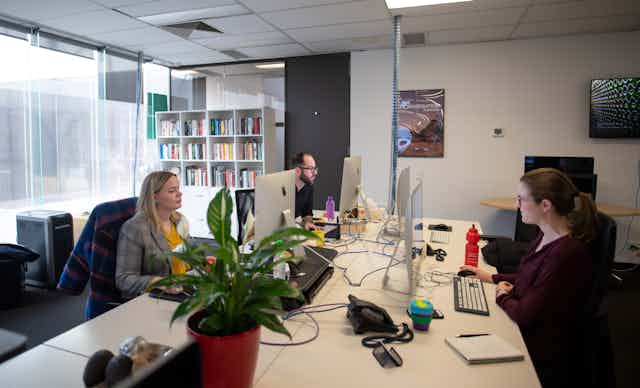Before the arrival of the internet, most journalism was produced in pretty well-off advertising businesses. The proximity of money and public interest journalism was often a source of tension, but rarely rupture. Every now and then you’d read something about the public’s right to know and sardonic journos would moan that “serving the public interest” really meant filling spaces between ads.
Advertising doesn’t pay any more – or more accurately it pays the likes of Google, Facebook and almost no one else. Space for “content” online is endless, but so is the torrent of misinformation. Cleaved from the funding it needs to survive, journalism has been freed to rethink what serving the public interest actually means.
At The Conversation we have given this a lot of thought, in part because we do journalism so differently. We only work with academic experts. We prize accuracy and trust above all else. We aim to serve our readers by giving them quality information with no other agenda than helping them be better informed.
This doesn’t always involve reporting on a high-profile court case or investigating corruption, as vital as that work is. Good information about nutrition is vital to deciding what to buy at the supermarket. Good information about how COVID-19 spreads is vital so people know how to protect themselves and each other. We know the damage that can be done when bad information spreads about a topic as important as vaccination.
So here’s my definition of public interest journalism: providing reliable and accurate information to those who need it most. At The Conversation it could be an article modelling the economic impact of the COVID-19 pandemic, or the latest research on endometriosis. At the Sydney Morning Herald it might be a political column or an investigation of public corruption.
Because we see serving the public interest as being the core of what we do, we make sure everything we publish is free. In fact, we give our work away to other media outlets. We want to support a healthy media ecosystem and ensure expert research and analysis gets the biggest possible audience.
We think this is the right approach, but it does have one drawback: it makes it harder to fund our work. This is why each year we turn to readers and ask those of you who value our work to make a contribution.
If you can donate, please do so, and thank you to all the wonderful and public-spirited readers who have already donated.
And to the dozens of people who got in touch in recent days to say they love reading The Conversation but aren’t able to donate – no worries and you’re welcome. It’s great you value our work, especially now we’re finally out of the business of filling spaces between the ads.

